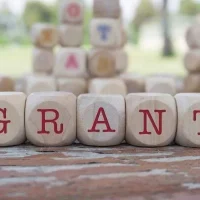Deadline: 18-May-23
The British Columbia Arts Council is now accepting applications for its Professional Development Grants Program to assist professional artists, cultural practitioners, production and technical personnel, and arts administrators with specific, short-term learning activities or opportunities to advance their practice or career.
The BC Arts Council acknowledges it carries out its work on the land of Indigenous nations throughout British Columbia. They are grateful for the continuing relationships with Indigenous people that develop through the work together. They acknowledge and raise the hands to the lək̓ ʷəŋən (Lkwungen) people, known today as the Songhees and Esquimalt Nations, on whose ancestral lands they operate the main offices.
Designated Priority Groups
- In addition to the integration of equity criteria across all funding programs, consideration will be given to designated priority groups identified by the BC Arts Council. These groups have been identified in order to achieve strategic direction commitments and correct funding gaps illuminated through recent evaluations and consultations. The designated priority groups consist of applicants who are:
- Indigenous (First Nations, Métis, or Inuit) Peoples;
- Deaf or experience disability;
- Black or people of colour; or
- Located in areas outside greater Vancouver or the capital region.
Funding Information
- The maximum request amount is $7,500.
- The request amount may be up to 100% of the eligible project budget.
- BC Arts Council intends to support successful applications at 100% of their request, however grants may be awarded for less than requested.
- Funding priority may be given to applicants who self-identify as part of a designated priority group.
What Types of Activities are Eligible
- Contact a Program Advisor to confirm the eligibility of an activity. Eligible activities may include, but are not limited to:
- Course or Workshop: A course or workshop following a specified curriculum or including specific skills acquisition or learning outcomes. This may include masterclasses or private studies with a specific focus. Online courses are eligible if registration is required, live instruction or mentorship is provided, and classes follow a schedule. Self-directed online learning is not eligible.
- Mentorship: An individual structured relationship with a qualified professional, or a group of professionals.
- Learning Residency: A learning-based residency that includes significant opportunities for skill development or knowledge exchange. Projects may offer a mix of learning and creation; however, as learning is the priority of this program, creation must not be the sole or primary objective. Self-directed residencies without significant opportunities for knowledge transfer are not eligible. For creation-based residency projects, consider applying for a discipline-specific Individual Arts Grant.
- Significant Opportunity: The presentation of work at a single event or exhibition. You must be invited by the host organization and be compensated for your participation; in-kind compensation may be acceptable. Eligible opportunities must be linked to the next stage of your career or future professional opportunities. If you are applying to this component, you must contact a Program Advisor in advance to confirm eligibility.
- Cohort or group learning projects are eligible. Each member of the cohort must be eligible and apply to this program individually. Each application will be assessed separately. Shared expenses should be identified.
Eligibility Criteria
- All applicants are encouraged to confirm their eligibility and the eligibility of their project with a Program Advisor prior to applying. Ineligible applications will not be forwarded for assessment.
- To be eligible, you must:
- be a Canadian citizen or Permanent Resident who ordinarily resides in B.C. and has lived in the province for at least 12 months immediately prior to submitting an application.
- demonstrate professional status by meeting the following criteria:
- have completed appropriate and relevant training in your discipline at a level that would be recognized as professional by other practitioners working in similar disciplines. Training may be through post-secondary institutions, traditional knowledge transfer, or apprenticeship with a qualified practitioner;
- have a minimum two years of professional practice in your field following basic training;
- be recognized as professional by other practitioners working in similar disciplines;
- be committed to working full-time at your practice when financially possible;
- meet discipline-specific criteria, as below:
- Performing Artists: a demonstrated body of previous professional work;
- Visual or Craft Artists: at least two professionally curated shows or exhibitions where artists fees have been received;
- Visual Arts Critics or Curators: have curated two or more exhibitions or published two or more works of critical writing for which you have received professional fees;
- Media Artists: have directed/created or hold creative control on at least one project subsequent to basic training for which you have been paid professional fees. This may include student works which have been professionally exhibited or screened;
- Creative Writers: at least one book professionally published;
- Arts Administration, Publishing, Producer, Artistic Support Staff: two or more years of full- or part-time paid employment (permanent or contract) in arts or cultural administration, artistic support, or at a professional book or periodical publisher;
- Deaf, Disability and Mad Arts: a demonstrated body of work in or across any artistic practice;
- Community-Engaged Arts Practice: facilitated two participatory arts projects in a community setting or learning environment;
- Multi- and Interdisciplinary Practice: a demonstrated body of professional public work that integrates multiple fields of practice;
- Museum or Indigenous Culture Centre Professionals: two or more years of full- or part-time paid employment (permanent or contract) in a museum or Indigenous Cultural Centre;
- Production and Technical Personnel: two or more years of full- or regular part-time paid employment (permanent or contract) in arts and cultural production or as a technician in an arts and cultural institution, organization, or venue.
- have submitted any overdue final reports on previous BC Arts Council grants as of the submission deadline for this program. OR
- have received at least one grant through the First Peoples’ Cultural Council ‘s Indigenous Arts Program and have submitted any outstanding final reports for that grant.
For more information, visit British Columbia Arts Council.





![Call for Applications: “Voices in Motion” Program [Sri Lanka] - fundsforNGOs Call for Applications: “Voices in Motion” Program [Sri Lanka]](https://www2.fundsforngos.org/wp-content/uploads/2023/04/dance-200x200.jpg)



































